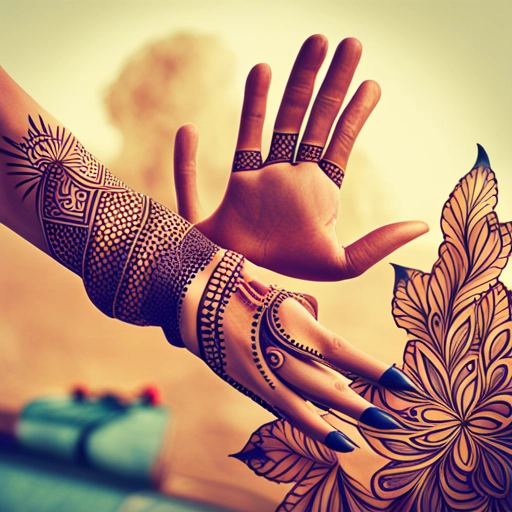Dubai, a city known for its luxurious lifestyle and cutting-edge fashion, has recently seen a surge in the popularity of temporary tattoos. This form of body art is gaining traction among both locals and tourists who seek to express themselves without the permanence of traditional tattoos. However, this trend also sparks an important conversation about its alignment with Islamic teachings, particularly concerning whether it is considered ‘haram’ (forbidden) or not.
Temporary Tattoos: A Blend of Art and Culture
Temporary tattoos in Dubai range from intricate henna designs, which have deep cultural roots in the region, to modern, stick-on tattoos that mimic the look of real ink. These temporary options provide a versatile way for individuals to adorn their bodies for special occasions like weddings, or simply as a fashion statement.
The appeal of temporary tattoos lies in their transient nature. Unlike permanent tattoos, which involve needles and ink, temporary tattoos are applied on the skin’s surface and last for a few days or weeks. This feature makes them particularly attractive to those who wish to avoid the lifelong commitment and potential regret associated with permanent tattoos.
Islamic Perspective: Navigating Religious Beliefs
In Islam, permanent tattoos are generally considered haram because they involve changing the creation of Allah and causing unnecessary harm to the body. However, the stance on temporary tattoos is more nuanced.
Temporary tattoos, especially those made from natural substances like henna, are not inherently haram as they do not permanently alter the body and are not harmful. Henna, for instance, has been used for centuries in Muslim communities for beautification purposes, particularly during weddings and Eid celebrations.
The debate arises with contemporary forms of temporary tattoos. Scholars argue that as long as these tattoos are temporary, do not depict offensive images, and are not used for deceptive purposes (like imitating real tattoos to portray a false image), they are permissible. It’s crucial for individuals to consider their intentions and ensure that their actions align with Islamic values of modesty and respect for the body.
A Trend with Boundaries
In Dubai, where tradition and modernity coexist, the trend of temporary tattoos is evolving with cultural and religious considerations in mind. Businesses offering temporary tattoos are increasingly aware of these sensitivities, ensuring their designs and practices are respectful and appropriate.
For those interested in temporary tattoos in Dubai, it’s recommended to seek out professional artists who understand both the artistic and cultural aspects of their craft. Whether it’s a traditional henna design or a modern temporary tattoo, the key is to choose something that resonates personally while respecting cultural and religious boundaries.
Conclusion
The trend of temporary tattoos in Dubai reflects the city’s dynamic nature and its ability to embrace modern trends while staying true to its cultural and religious roots. As with any form of expression, it’s important to be informed and respectful of the cultural and religious implications, particularly in a diverse and multi-ethnic city like Dubai.


